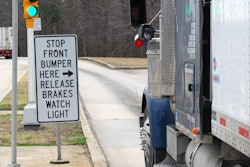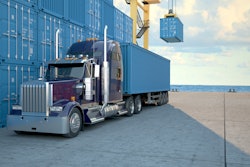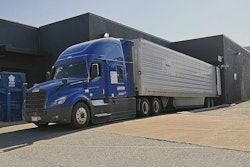President Donald Trump in late April issued an executive order that walked into some of the hottest simmering tensions in trucking by mandating boosted enforcement of the requirement that drivers speak English. The order also called for a review of non-domiciled CDLs, often issued to foreign citizens.
The order states that truck drivers operating in the U.S. "should be able to read and understand traffic signs, communicate with traffic safety, border patrol, agricultural checkpoints, and cargo weight-limit station officers," and provide feedback to employers and customers. "This is common sense," the order concludes.
Yet law enforcement has struggled with enforcing the long-established English language proficiency (ELP) regulation, with the Commercial Vehicle Safety Alliance voting to remove ELP from the out-of-service criteria in 2014 and reversing that decision in the days after the executive order.
The order also calls for the U.S. Department of Transportation to "review non-domiciled commercial driver’s licenses (CDLs) issued by relevant State agencies to identify any unusual patterns or numbers or other irregularities with respect to non-domiciled CDL issuance." An Overdrive investigation identified growth in non-domiciled CDL issuance in most states who provided data, yet also found that many states don't even track the CDLs they issue to non-citizens.

All of this comes as the Federal Motor Carrier Safety Administration and DOT say they're looking closely at both non-domiciled CDLs and ELP, and some freight analysts think strict ELP enforcement could impact tens of thousands of drivers, potentially boosting rates 15%.
What do you think?
If you haven't already taken the Overdrive survey via prior coverage, weigh in below:
[Related: Trump DOT 'ELP mandate' could boost rates 15%: Analysis]








